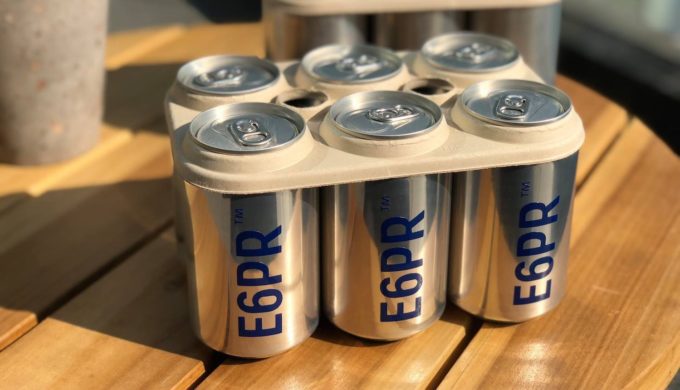Plastic pollution off the Texas Gulf Coast has long been a problem for marine life. Six-pack rings for beer, in particular, have been known to choke seals, tangle sea bird wings, and distort sea turtle shells. As a result of the plastic pollution issue and its growing severity, a Florida brewery has developed a solution in the form of biodegradable six-pack rings. Not only do they decompose, but they also serve as a food source for wildlife.
Lifestyle
Brewery Unveils New 6-Pack Ring That Feeds Sea Turtles

Photo: Facebook/GritDaily.com
The brewery’s barley and wheat by-products are compressed into a durable material, tough enough to support their use as a six-pack ring but with an ethical lifespan. Developed by Saltwater Brewery, which is a craft brewery based in Delray Beach, Florida, their integral product (beer) is created by those who love the ocean—surfers and fishermen. Working with E6PR (an acronym for Eco 6-Pack Rings), their hope is that additional breweries will purchase these new sea-creature-friendly rings in order to offset their manufacturing costs and make a conscious decision to help the environment.

Photo: Facebook/Maxine Perella
In May 2018, CBS News reported that the project made great use of the brewery’s by-products, developing one solution to the plastic waste problem which was “compostable when disposed of properly, and biodegradable if they end up being littered.” At present, “Screamin’ Reels IPA” from Saltwater Brewery can be found in the E6PR, available in large South Florida grocery stores such as Whole Foods and Publix, among others. They have hopes of appealing to retailers and craft brewers throughout North America as a result of this innovation. This could definitely make some headway in Texas. Louisiana State University conducted a study that suggested more than 5 million tons of plastic ended up in our oceans annually, and that the Gulf of Mexico was the recipient of plastic waste from U.S. cities along the Mississippi River watershed.



